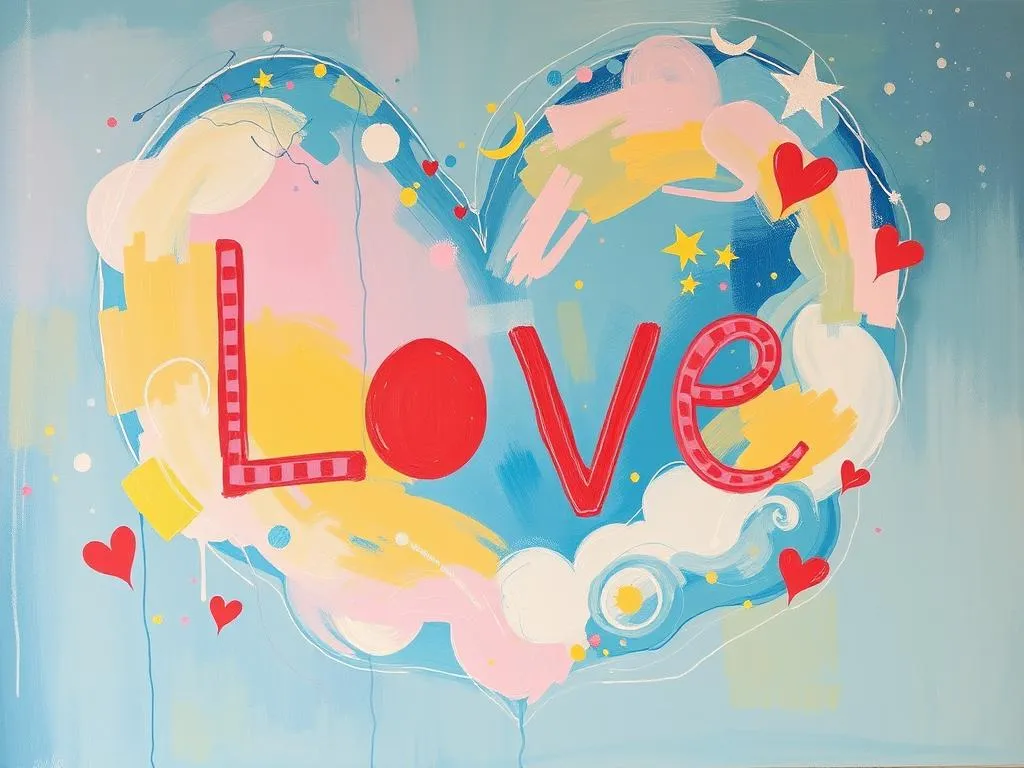
Introduction
Dreams have long fascinated humanity, serving as a window into our subconscious mind and revealing our deepest thoughts, fears, and desires. Among the myriad of dream scenarios, dreams featuring a person we love or are deeply connected to hold a special place. Whether it’s a romantic partner, a family member, or a close friend, these dreams often stir up powerful emotions and leave us pondering their significance. They can evoke feelings of joy, longing, confusion, or even anxiety, prompting us to explore the underlying messages they might convey. Understanding the symbolism behind these dreams can offer profound insights into our relationships and emotional states, making them not only intriguing but also relevant to our waking lives.
Symbolism and Meaning
When analyzing dreams about a loved one, it’s essential to consider the symbols and emotions at play. Each dream is unique, shaped by the individual’s experiences and emotions. However, there are common themes that often emerge.
Love itself is a powerful symbol in dreams. It can represent not only the affection we feel for another person but also our need for connection, acceptance, and validation. When you dream of someone you love, it may symbolize a desire for intimacy or a recognition of the importance that person holds in your life. This could be a cue for you to evaluate how well you are nurturing that relationship or your own emotional needs.
Another significant symbol in such dreams is communication. If your dream features conversations or exchanges with this person, it might indicate unexpressed feelings or unresolved issues. For example, if you’re dreaming of a loved one with whom you’ve had conflict, it may reflect your desire to resolve those issues, or perhaps it’s your subconscious urging you to confront your feelings.
Presence is another critical aspect to consider. The way a loved one appears in your dream—whether they seem happy, sad, distant, or close—can reveal a lot about your current emotional state and the dynamics of your relationship. If they appear joyful, it might indicate a sense of fulfillment in that relationship; conversely, if they seem distant or unhappy, it could point towards feelings of regret or concern.
Lastly, the context of the dream is equally important. Are you in a familiar place or an entirely new setting? The environment can reflect your emotional landscape and may indicate whether your feelings towards this person are grounded in stability or uncertainty.
Key Scenarios and Variations
The interpretations of dreams featuring a loved one can vary significantly depending on the context and specific scenarios that unfold. Exploring these variations can offer deeper insights into what our subconscious may be trying to communicate.
One common scenario is dreaming of a reunion with a loved one. This can often symbolize a desire to reconnect, either with that specific person or with feelings of love and warmth. If you dream of someone you’ve lost touch with, it may express a yearning for that connection or a fear of losing emotional bonds. In some cases, it could also signal a phase of healing or closure you are experiencing regarding that relationship.
Conversely, dreaming of a loved one who has passed away can evoke complex emotions. These dreams may serve as a form of comfort or closure, allowing you to process grief and unresolved feelings. The appearance of the deceased can symbolize the enduring impact they had on your life, and engaging with them in your dreams may help you find peace.
Another variation might involve a conflict or disagreement with a loved one in the dream. This scenario could reflect real-life tensions or fears about the relationship. If you find yourself arguing or feeling rejected in the dream, it may be worthwhile to consider whether you are suppressing feelings of frustration or resentment in your waking life. This dream can serve as an invitation to address these feelings before they escalate further.
Dreams of betrayal or infidelity involving a loved one can also be distressing. Such dreams may not always reflect actual fears of betrayal but can indicate insecurities or fears about closeness. They may highlight a fear of abandonment or a lack of trust, either in yourself or in your partner. Exploring these feelings can provide an opportunity for self-reflection and growth.
Lastly, dreaming of a loved one with an exaggerated persona—for instance, they might be a celebrity or embody traits that are larger than life—can be indicative of your own aspirations or idealizations. This type of dream might reflect your desire for that person to fulfill specific roles in your life, or it could be a manifestation of your aspirations for love and connection.
Real-Life Connections and Takeaways
Understanding the nuanced interpretations of dreams about loved ones can help bridge the gap between our subconscious and conscious minds. It can shed light on our relationships and emotional landscapes, prompting us to engage with our feelings and relationships more consciously.
To connect these dreams with real-life situations, start by reflecting on the emotions you felt during the dream. Were you happy, sad, anxious, or relieved? These emotions can serve as a guide to understanding your current feelings towards the person in your dream. For instance, if you felt joy during the dream, it might indicate that you’re in a good place in that relationship or that you miss that connection. On the other hand, feelings of sadness or anxiety could signal underlying tensions that need to be addressed.
Consider the context of your dream and how it relates to your waking life. Are there unresolved issues with this person? Have you been feeling distant or disconnected? Use the dream as a catalyst for discussion, whether that means opening up a dialogue with the individual in question or taking time to reflect on your own feelings.
It’s also valuable to recognize the symbols present in your dream. What do they mean to you personally? For example, if you dream of a loved one in a place from your past, it may evoke nostalgia and prompt you to think about how far you’ve come in your relationship or personal growth. This reflection can help you appreciate the journey you’ve taken together.
Engaging in self-reflection is essential. Journaling about your dreams can help you uncover patterns over time, allowing you to see how your dreams evolve as your relationships change. Consider asking yourself questions such as: What did this dream reveal about my feelings towards this person? How can I foster a deeper connection with them? Am I projecting my own insecurities onto this relationship?
Finally, remember that dreams are often a reflection of your inner world. Use them as a tool for personal growth and emotional exploration. They can guide you in recognizing areas where you might need to nurture relationships or address your own feelings. By engaging with your dreams actively, you can cultivate a more profound understanding of yourself and those you love.
In conclusion, dreams featuring a loved one can be rich in symbolism and meaning, serving as a reflection of our innermost emotions and desires. By exploring these dreams, we open ourselves to deeper insights into our relationships and emotional states. Embrace the journey of self-discovery that these dreams offer, and allow them to guide you towards stronger connections and a more fulfilling emotional landscape.







